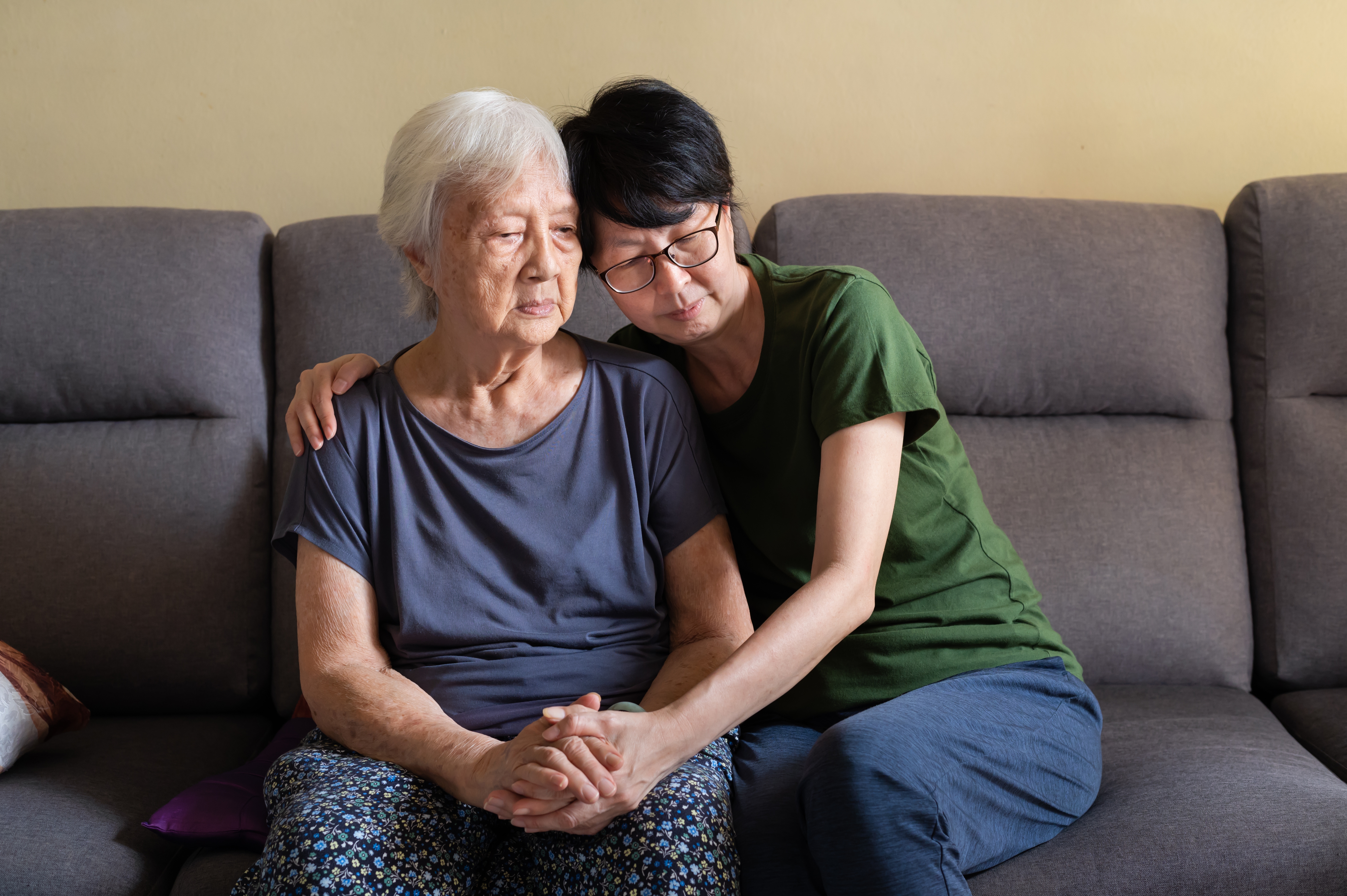Caregivers Need Care Too

Spectrum's CEO Sandra Ketchen on National Caregiver Day and her reflections on the caregiving journey.
I’ve been a caregiver – and I’m sure many of you reading this can also relate. I remember the constant stress, coupled with sense of duty and the unexplainable emotional rollercoaster of caring for a loved one who is dying or coping with serious illness.
A few years ago, Lisa Raitt courageously shared a video that was an eye opener for many of us who took the time to watch. The video gave viewers a glimpse into Ms. Raitt’s daily reality as she struggled to care for her husband who had been stricken by early onset Alzheimer’s disease at the age of 56. It shows what was a typical morning for Ms. Raitt – trying to calm her husband at 4am as the 6’2”, 250-lb man became increasingly agitated, not unlike so many others impacted by this disease.
The former MP from Milton and Senior Cabinet Minister has been candid about her experience caring for her husband at home – even sharing what she called “the really bad stories” that people in her position regularly face. In doing so she was able to shine a light on the hundreds of thousands of caregivers in this country who, as she put it, “often suffer in silence and alone”.
Caring for someone with Alzheimer’s or dementia is challenging to say the least, especially when the individual can no longer safely mange activities of daily living. Much of the burden falls on family members who struggle to balance this with the other aspects of their life such as careers, children, and social activities. Many caregivers are not prepared for the task of looking after a loved one and the potential for burnout is real – neglecting their own physical and mental health creating an even bigger social issue.
As our population ages, the number of caregivers will only increase. According to the Landmark Study from the Alzheimer’s Society, by 2050 over 1.7 million Canadians will be living with dementia and the number of care givers supporting these people will increase to over 1 million. The report estimates that the number of annual hours supported by family members could reach almost 1.4 billion by 2050 - equivalent to over 690,000 full-time jobs! I’ve said it before and will say it again here: changing demographics means that we need to prepare today for the coming wave of demands on our health system. The oldest Baby Boomers turn just 77 this year – we are seeing only the tip of the care-giving iceberg.
Thinking differently about how we deliver care is part of the solution. By taking a more holistic view, we can provide much needed supports for caregivers and families to keep patients safe in their homes for as long as possible. This could include assistance with personal care and nursing but also specialized dementia or palliative care support in the home. For care in the home to be sustainable though, we need to also think about how to support the caregivers as well – peer and counselling support, respite opportunities, financial planning and management, employment benefits, coping strategies, and help with their own daily activities. The journey of a caregiver is not for the faint of heart.
Ms. Raitt’s story is not unique – she just had the courage to make it visible. There are so many other people out there just like her – trying to do the right thing – trying to navigate a similar journey with a loved one. Finding ways to care for the caregivers in our society will be critical to the scalability of our healthcare system long term. Caregivers need care too.